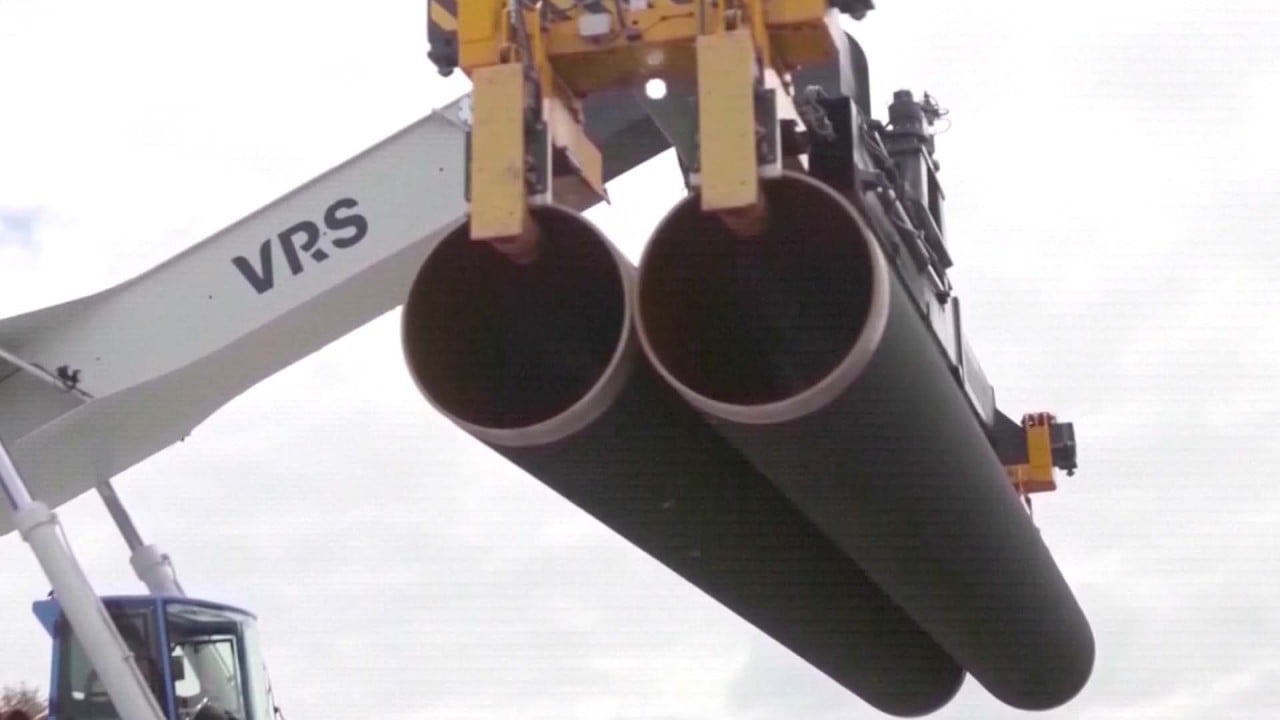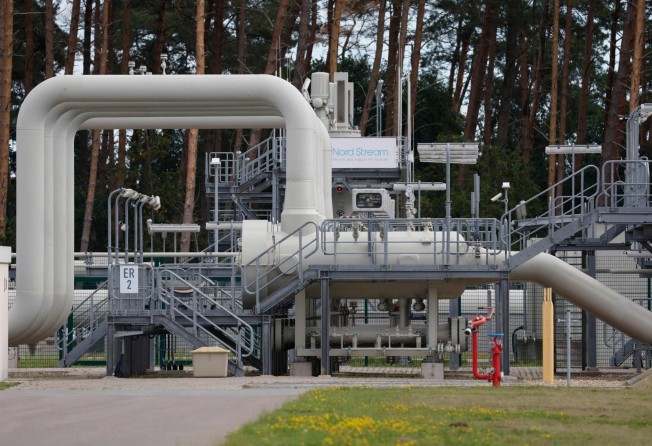
01:18
Russia-Europe gas pipeline temporarily closed for maintenance amid EU fuel shortage

European households will benefit from at least €375 billion (US$372 billion) in government aid to stem whopping energy bills this winter, yet there’s a risk the smorgasbord of spending won’t bring enough relief.
The divergent solutions to Russia’s squeeze on natural gas supplies may end up being only temporary fixes since wholesale prices are set to remain far above historical norms. In August, the average price offered to domestic customers in the largest European countries was 67 per cent higher than a year ago for electricity and 114 per cent higher for gas, according to consultancy VaasaETT.
“If you can’t control the wholesale price, the only thing left you can do is basically hand out money”, said Philip Lewis, chief executive officer of Finland-based VaasaETT. “The only thing consumers can really do is save energy”.
This winter will be grim across the continent. The UK, which already has the highest electricity costs in Europe, is set to see winter bills rocket by about 178 per cent. The Netherlands, with the highest gas tariffs, also is seeing triple-figure increases.
The total bill for European governments is nearing €379 billion, based on fresh announcements and data from think-tank Bruegel. It’s likely to grow if European Union market interventions draw a windfall for governments.
In the UK most households will see prices almost triple from last winter starting on October 1 after regulator Ofgem raised the limit on how much suppliers can charge per unit of power.
Providers are privately owned, and about 30 poorly hedged companies went bust when wholesale prices soared above previous Ofgem caps. The government is paying £400 (US$461) towards household bills and promises more support for the poorest, but the pressure is on new Prime Minister Liz Truss to do even more.
Germany’s households in the epicentre of Europe’s crisis saw August’s bills jump by an average 185 per cent compared with a year earlier, according to consumer website Check24. The government is offering €95 billion in relief after tripling its package on September 4.
The French government is freezing and capping power price rises for homes, which primarily use electricity, and not gas, for heating. While, in Italy, the typical household faces a staggering 91 per cent jump in power prices and a 71 per cent jump in gas bills in the year ending October, compared with the year before.
In the Netherlands, the government is said to be working on a plan to generate as much as €16 billion to ease the burden on citizens. Sweden, Europe’s biggest power exporter, suffers from a severe shortage in the south, where most consumption is. Cable bottlenecks mean that the cheap electricity produced by hydro and wind parks in the North aren’t benefiting enough people.
Denmark has no cap on the power price, but municipal governments tend to own most of the supply companies or have majority stakes. A household using natural gas for heating is set to pay about 38,000 kroner (US$5,075) this winter – 70 per cent more than last year.
A major wholesale market intervention in Spain and Portugal helped lower power prices by capping the gas cost that’s incorporated into the calculation. As a result, prices charged by suppliers, which are private companies, have stayed relatively flat compared with last year, with rises of just 1 per cent-2 per cent in Portugal.

In Poland, household prices are regulated, and almost all suppliers are state-controlled. Companies send proposals for tariff increases to the industry watchdog, which decides the upper limit for the following year. The regulator warned that 2023’s bills may shoot up 180 per cent unless the government acts.
State-owned Electric Ireland raised prices at least four times in a year in a country where there’s no cap on consumer bills. Ireland is exempt from EU targets on consumption because it gets three-quarters of its gas from the UK, but the country still encourages people to “Reduce Your Use”.
In the Czech Republic there’s no cap on energy bills, and some fixed contracts rocketed by as much as 650 per cent from a year earlier for consumers signing in August. The government is considering a windfall tax on producers and zeroing in on a takeover of the largest utility, CEZ AS, of which it already owns three-quarters.